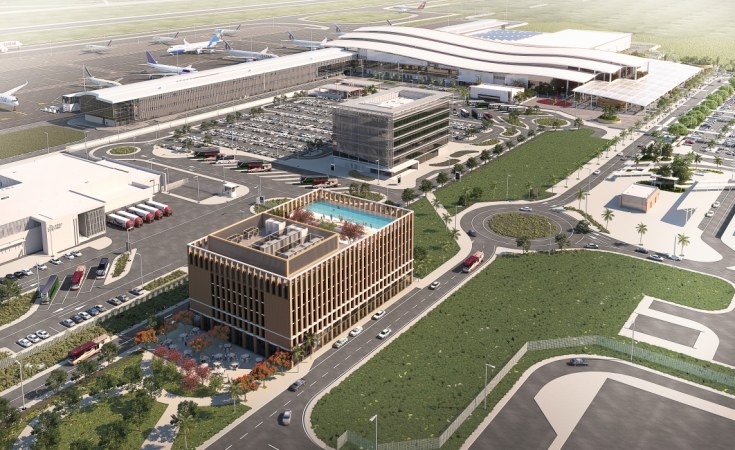Construction works on the proposed international airport in Bugesera district have gained momentum and there is optimism that it could be completed by 2026.
In September, 2022, during the Aviation Africa Summit, Rwanda showcased the airport's structural model, a facility expected to be only 40 kilometers away from Kigali.
ALSO READ: Bugesera Airport to be among the greenest airports in Africa
With an estimated $2 billion worth of investment, the airport's developers say that the facility could potentially help Africa's aviation industry take off.
Here are 5 things you should know:
1. More than 8 million passengers a year
The new facility, according to developers, will boast a 130,000-square-meter main terminal building capable of accommodating 8 million passengers a year.
The figure is expected to rise to over 14 million passengers in the following decades.
"I'm amazed, it's like a dream come true to see the impact and magnitude of this project to the population," Jules Ndenga, CEO of Aviation Travel and Logistics (ATL) Holding told CNN.
ATL is overseeing the construction works.
"We are really impassioned to see the efforts completed and starting operations."
The facility will also see a dedicated cargo terminal, capable of accommodating 150,000 tons of cargo a year.
ALSO READ: Ten things we know about the Rwanda-Qatar Airways deal
2. Beyond Rwanda's borders
The arrival of the new airport will help address the prevailing challenge of a fragmented network of routes that means passengers often have to travel via Europe or the Middle East when flying between African countries.
For instance, a lack of connections across the continent is grounding Africa's untapped potential in the aviation business.
Despite boasting 16.75 percent of the world's population with 1.4 billion people, the continent has less than 4 percent of the global air market, according to a 2018 report by the Single African Air Transport Market - an initiative set up by the African Union.
3. Focus on connectivity
The problem of connectivity presents the "biggest challenge" to the African aviation industry, according to RwandAir Chief Executive Yvonne Manzi Makolo.
"The continent is huge, it's vast, but it's difficult and unpredictable traveling within it ... and it's extremely expensive," Makolo told CNN, in a separate interview.
"What's making it more challenging is the conditions of operating within the African continent. The cost of operations is so much more, whether it's airport fees, whether it's ground handling, parking, overflight (flying from one country's airspace to another's) - everything is much more expensive.
Sometimes up to 50 percent more than in the Middle East and Europe, which makes the ticket prices even more expensive and makes (some) routes unviable."
But solutions are touching down, starting with the Single African Air Transport Market (SAATM).
First proposed in 2018, if implemented the policy would create a single market for African aviation, facilitating the free movement of people, goods, and services. The continent currently operates under bilateral air service agreements, a highly restrictive policy that makes it difficult to open new routes.
Just recently, Rwanda was chosen among 17 countries that are set to participate in an implementation pilot project of the Single African Air Transport Market (SAATM).
So far, just 35 of the 55 African states have signed up for SAATM, with more expected to follow.
4. Qatar-Rwanda partnership key
Qatar Airways will have a 60 percent ownership of the new airport as well as acquire 49 percent of shares in the national carrier, Rwandair, offering access to over 65 locations around the world.
The partnership, Ndenga said, comes at a time when Rwanda is positioning itself as Africa's centerpiece for air travel.
"The main objective of this effort is basically to make sure that Rwanda becomes an African hub where everyone will be transiting either for tourism, but also for business and different industries," Ndenga added.
"The impact will be in terms of providing a platform for all the economic life of the country to develop sustainability. We see that as not only an impact on the economy but in the neighborhood ... we know that this area will become a satellite city of the city center."
5. Kigali International Airport to host a training school
The new proposed international airport in Bugesera is a significant upgrade on the Kigali International Airport (KIA), which is expected to remain operational for special arrivals, some chartered flights, and a pilot training school, reported CNN.
Pre-pandemic, the airport was shuttling close to 1 million passengers annually.
In April this year, KIA was accredited to Level 1 of the Airport Customer Experience Accreditation programme, by the Airports Council International.


